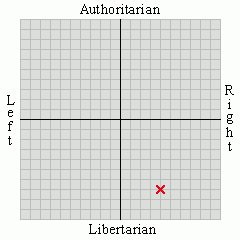As far as the election result goes it's looking like... er, well, not a draw after all. The Labor Premier conceded defeat a couple of hours ago, and as of now his party have 41 seats in the 88 seat lower house. The Liberals have 35 and their coalition partners, the Nationals, have 10 with the last 2 seats still in doubt (though Labor lead both). Still, another election with a close result, which is starting to become a bit of a repeating pattern as The Age point out.
First it was Western Australia, then Tasmania and then the entire nation that waited impatiently for the votes to be counted and deals to be done.Make of all that what you will. A measure of how long political parties tend to take to become arrogant and assuming government is their entitlement? The time it takes an electorate to realise what a bunch of pricks they are? A touch of both? For me the interesting point is that the closeness of these results shows that the opposition can no longer expect to benefit automatically from the unpopularity of a government - in itself a pretty arrogant attitude to take. What I hope it all means is more voters looking at alternatives to the usual suspects, because maybe then the message might get across that neither Left nor Right have all answers and know how best to run the lives of millions of individuals, and that the only people who can are individuals themselves.
Now it is the turn of Victoria to face the prospect of a hung parliament.
The state that proved vital to the federal ALP hanging on to power in August has turned against the same party in a landslide vote.
...
But in a continuation of a curious trend, the Victorian result is both close and confused.
Along with the federal election, the most recent polls in Tasmania, WA and South Australia produced multi-party governments and tight results.
Victoria seems likely to go the same way, as did the nation that produced Australia's parliamentary system: Britain.
The common thread in each of these electoral outcomes has been the length of time each of the incumbents had held office.
When they called their most recent elections, the governments of Australia, the UK, WA, Tasmania and Victoria were all seeking fourth terms.
"There seems to be no particular reason for these tight elections than voters feeling like a change," said political scientist Nick Economou.
"They'll give you a third term, but draw the line at a fourth."


















